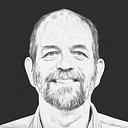Past Is Prologue
The Human Cost of War
I did not start crying until I was, of all places, outside of a McDonald’s restaurant in a rest area on highway S17 in Olempin, Poland
Child refugees, mostly just with their mothers, but occasionally with a gray-haired grandfather or non-Ukrainian father, were being coaxed to choose a toy from boxes provided by a kind-hearted company and volunteers helping those fleeing the war.
I had gone to Warsaw to continue research about my own family’s history 80 years ago during the Holocaust. I had gone there once before, but this time, because of the war in Ukraine, before going I asked my former colleagues in the U.S. Department and Defense and Intelligence Community if it was safe. They assured me it was, as Poland was a NATO country.
I stayed in a hotel in the middle of what was once the Warsaw Ghetto — a place from which over 90% of my mother’s family had been taken and murdered in the Holocaust. Across the street was the former location of the first Warsaw Judenrat. Two blocks away was the apartment building my mother’s family had owned and lived in, miraculously still in existence, though now dilapidated and empty.
I didn’t cry when I touched its cold walls, nor did I cry when I visited the vast Warsaw Jewish Cemetery, with hundreds of thousands of graves piled on top of one another, along with a mass grave of thousands of rocks for the so many others killed in the ghetto.
My mother’s family actually had two homes, one in Warsaw and the other in the countryside. The one in the countryside was a forest and sawmill complex in what is now Western Ukraine. For the past half-year, a local Ukrainian historian had been helping me discover faint traces of her family’s life there — in fact, he had found some people still alive who remembered the sawmill and that it belonged to my mother’s grandfather. The historian was good at his job, and we had become close.
With war now raging, the second half of my trip to Warsaw took on a different mission than planned. Instead of visiting my historian friend in Ukraine, I drove east to visit his daughter and one-year-old grandson, both now refugees in Poland. They had managed to cross the border right after the war started while men stayed behind, and were staying now with a friend who had previously moved to the eastern edge of Poland.
After I walked up to the house and made peace with the dog, I walked inside. The grandson gave me a huge smile and called out “Tato!” — which I suspected and later confirmed was the Ukrainian word for “daddy.” I doubt I looked much like his father, but it was clear he was awaiting his real father’s arrival, and at his age, any man he met would be so tentatively named.
After a few moments, the boy’s look changed and he realized that I was only a stranger. Like his mother and grandfather, both piano teachers, he had musical talent, as he danced to some YouTube videos of American children’s songs dubbed in Ukrainian, expertly using his mom’s phone to choose the ones he liked and crying when one he didn’t like came on.
Finally, he had had enough music and started crying regardless of the song. His mother picked him up and started nursing him and told me she was having a hard time eating out of worry. She had no idea where she would go in the long term, or how she would make a living outside of Ukraine. She showed me the family history her father had put together of his family’s losses in the Holocaust — parallel to my own research.
The home’s owner kindly took the son off to another room, and after an hour of drinking tea and doing my best to speak of hope, I left for the 3.5-hour drive west back to Warsaw.
It was different from my drive east. Many cars and buses had Ukrainian license plates and were packed with people and bedding — a modern echo of the household goods-filled carts pulled by horses and people fleeing war 80 years ago.
It was odd that of all things, after all of my research on the Holocaust, it was the toy distribution outside of a McDonald’s that made me break down — the careful choosing by children of trinkets to distract them from awareness of what is really happening and from the anxiety of what lies ahead. They know only that their mothers are worried, that they are not home, that everyone around them is speaking a strange language, and that their fathers are missing.
It is easy to underestimate the human scope of the tragedy of war and see it as a contest of nations’ armies and weapons and land. But it is war’s terrible emotional impact on people that is the most costly. I grew up with a father that frequently woke up screaming from nightmare memories of his own trauma as a teenager in Warsaw 80 years ago.
In the airport, I waited to return home while public address messages repeated in Ukrainian where refugees could find assistance. Just like at McDonald’s, many mothers were there with children and no father, waiting for a flight to stay with faraway relatives.
It was then that the worst experience of my whole trip occurred.
A woman near me, clearly a refugee, answered her cellphone, cried out, and started wailing in a way that could mean only one thing.
The human cost of war descended like a hammer, and I realized that while I was going home, she never would.

